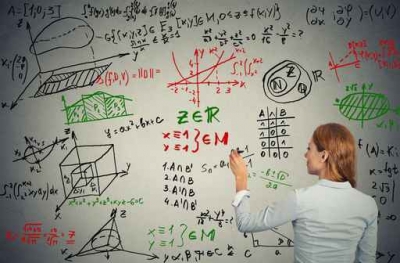
I am studying in Std XII with PCM as my main subjects. I have a great interest in nuclear physics and I love Maths. I want to become a professor. What steps do I need to take to achieve this? I have planned to join a B.Sc./Int. M.Sc. course after school. Please give information about the good colleges in India that offer the course with equal importance to student activities on campus. What entrance exams do I need to crack? Will University of Delhi be a good option?
Graduation/post-graduation in Mathematics is offered by most of the universities in India. A master’s degree is the minimum requirement to teach at the college level; however, universities prefer a Ph.D. and also offer extra increments to these candidates. For a Ph.D., you need to clear National Eligibility Test (NET)/ State-Level Eligibility Test (SLET).
After B.Sc. (Hons), you can also apply for an Integrated M.Sc.- Ph.D. degree. For this integrated programme the best places are: Tata Institute of Fundamental Research (TIFR), Mumbai; The Institute of Mathematical Sciences (IMsc), Chennai; Harish Chandra research Institute (HRI), Allahabad; Indian Institutes of Science Education and Research (IISER) at Pune, Mohali, Kolkata, Trivandrum and Bhopal, and at the National Institute of Science Education and Research (NISER) AT Bhubaneswar.
To enter the field of nuclear physics you should have a good grounding in Physics. So you could start with an undergraduate degree in Physics and go for post-graduation with this specialization. Some of the institutes offering such courses are IIT Mumbai, Delhi, Kanpur, Kharagpur, Guwahati, Madras and Roorkee; The Indian Institute of Scienecs, Bangalore; The Saha Institute of Nuclear Physics, Kolkata; TATA Institute of Fundamental Research, Mumbai; Institute of Physics, Bhubaneswar; Nuclear science Centre, New Delhi.
Picture Credit : Google




